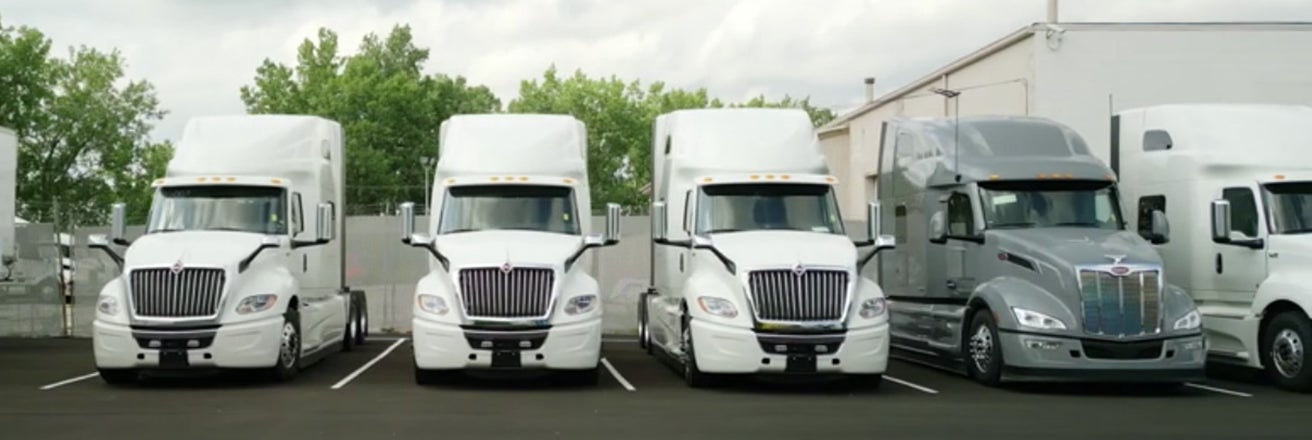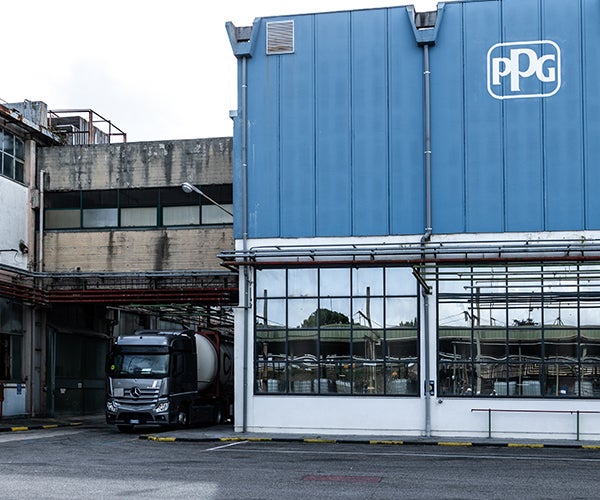Our incident report numbers remain stable, underscoring our robust safety framework and showcasing the effectiveness of our safety protocols. Throughout 2024, our teams documented 263 incidents through U.S. DOT 5800 incident reports or PPG transportation incident reports, accounting for under 0.03% of all shipments. Eight of these incidents warranted prompt notification to governmental authorities and were classified as significant according to our internal standards and Sustainability Accounting Standards Board (SASB) guidelines, with one occurring within the U.S. and seven outside U.S. territory.
In 2024, we began work on a new global transportation management system (TMS) that integrates with our enterprise resource planning (ERP) platform. While full implementation will take several years, we are working to accelerate adoption in our European business in alignment with the initial locations planned for transition to the new ERP. This is intended as a first phase of a planed implementation of the new ERP with TMS as part of PPG's global template business systems solution. The centralized TMS will help our team identify and resolve inefficiencies by optimizing carrier selection, shipping weight and routing decisions. In addition to facilitating more efficient transportation that results in less emissions associated with movement of PPG freight, the TMS will lower the cost to serve our customers and maintain our competitive advantage.
PPG currently deploys a regional based TMS for large portions of our freight under management in the U.S., Canada and Mexico, along with limited European operations. Supported by centralized transportation management and planning, PPG leverages the TMS to drive both cost effective and efficient transportation planning while ensuring compliance by using transportation providers that are approved and contracted through PPG's procurement team.
Sustainable alternative fuels in EMEA
In 2024, we worked with carriers to change over parts of the EMEA transport fleet to hydrotreated vegetable oil (HVO), a renewable diesel alternative. HVO is produced by processing waste vegetable oil, and reduces transportation emissions by up to 90%. It can be used to power diesel vehicles without significant modification, which significantly reduces the barriers to its use. In France alone, we allocated more than €1.5 million on shipping with biofuels in 2024.
While PPG continues to actively pursue decarbonization opportunities, current market limitations present certain constraints. In many instances, there are not cost-effective methods available to reduce the emissions associated with moving our products. While the range of electric vehicles has improved, PPG continues to monitor developments that provide greater range, better cold weather performance and hauling capabilities for heavy loads before implementing electric trucks for our transportation needs.
Throughout the EMEA region, we have continued to replace diesel-powered shuttle vans with electric vehicles where possible. Transport vans are easier to switch to electric vehicles because of their lower payload. In addition to reducing transport emissions, we anticipate that electric vehicle adoption will lower shipping costs on routes where they are feasible.
Driving transportation efficiency
PPG continues to advance initiatives to minimize transportation-related emissions across our global supply chain. Our multi-faceted approach includes optimizing shipping patterns, consolidating shipments and strategic shifts toward lower-emission transport modes.
In 2024, we continued to integrate performance, cost and sustainability criteria into freight tender evaluations, giving preference to carriers that demonstrate strong management against these aspects. Our European transportation management team consults regularly with sustainability experts from top carriers. These discussions focus on identifying emission reduction opportunities and ensuring our suppliers maintain robust sustainability roadmaps that align with PPG's emissions reduction targets.
Our sophisticated emissions tracking dashboard provides detailed insights into transportation-related environmental impacts across different transport modes. This technology enables our operations team to analyze variables, including distance, shipment weight, transport mode and vehicle utilization rates to optimize routing decisions and carrier selection to reduce emissions.
As the capacity and availability of low emissions technologies continue to ramp up, we are working in parallel to avoid excess emissions from air freight – our most emissions-intensive form of transport. To prevent unnecessary heavy air shipments, requests for expedited shipping must pass through an approval flow that includes director-level sign-off.
For more information about our approach to safe transportation, including the ways that we engage with our suppliers, see the bottom of this web page.
Multi-year data highlights
Transportation incidents
Scroll right to view further data »
| 2024 | 2023 | 2022 | 2021 | 2020 | 2019 |
| Total number of incidents reported | 263 | 276 | 288 | 561 | 255 | 293 |
| Number of significant incidents | 8 | 9 | 12 | 16 | 12 | 20 |


